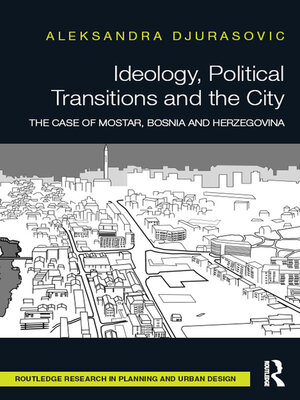Ideology, Political Transitions and the City
ebook ∣ The Case of Mostar, Bosnia and Herzegovina · Routledge Research in Planning and Urban Design
By Aleksandra Djurasovic

Sign up to save your library
With an OverDrive account, you can save your favorite libraries for at-a-glance information about availability. Find out more about OverDrive accounts.
Find this title in Libby, the library reading app by OverDrive.



Search for a digital library with this title
Title found at these libraries:
| Library Name | Distance |
|---|---|
| Loading... |
Recent history has seen Bosnian and Herzegovinian (BiH) cities undergoing several transitions. Their cities have developed under socialism (1945 – 1992), have suffered through the civil war during the 1990s, and during the last twenty years have been undergoing a slow and multifaceted transition to an indeterminate end point.
Focusing on the post-socialist, postwar, and neoliberal transitions experienced in BiH, the book shows that planning systems deviated from control-oriented and top-down regulation to flexible approaches for more open for informal development. The book analyzes several levels of planning-related processes: the former Yugoslavia, BiH, the city of Mostar, and three urban zones (the Industrial Zone Bišće Polje, the City Zone Rondo, and the Historic District and the Old Town Zone) in order to offer insights into the new planning systems in the late phase of post-socialist transition.







